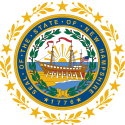Rule 802. The Rule Against Hearsay
Hearsay is not admissible unless any of the following provides otherwise:
a statute;
these rules; or
other rules prescribed by the Supreme Court.
2016 NHRE Update Committee Note
The amendments made by supreme court order dated April 20, 2017, effective July 1, 2017, made stylistic changes to the rule.



